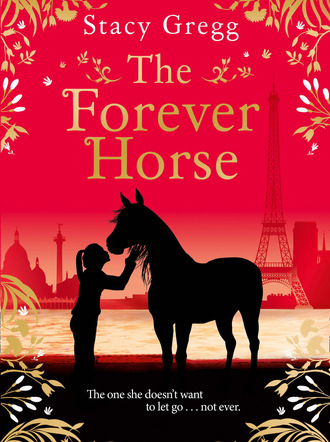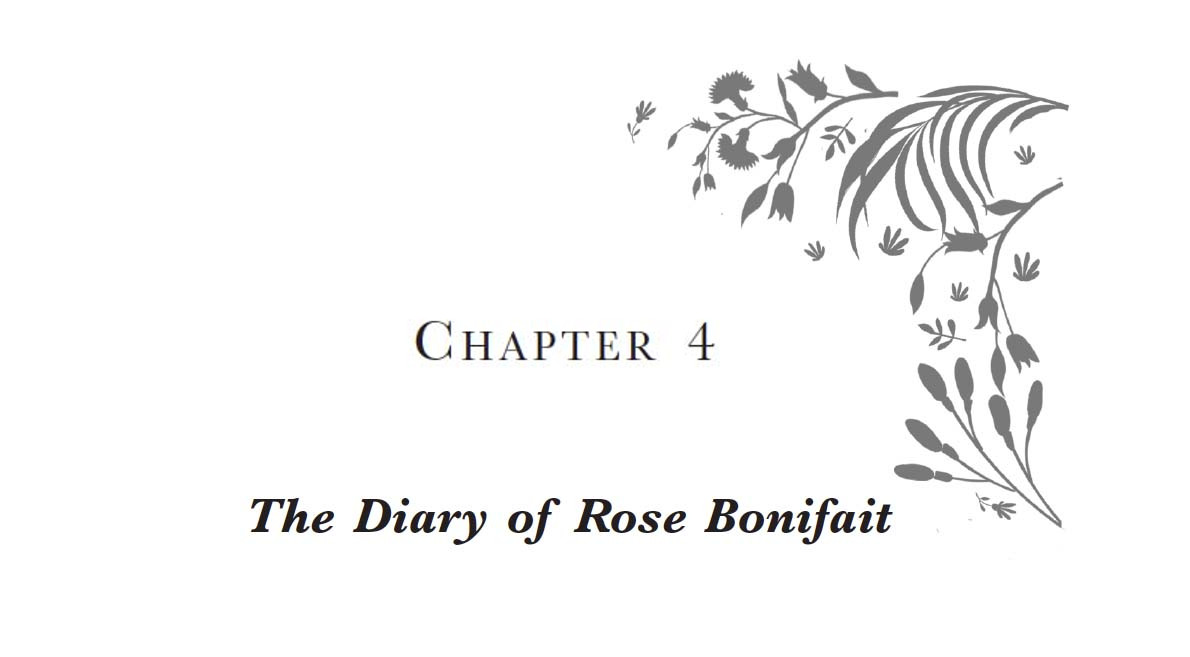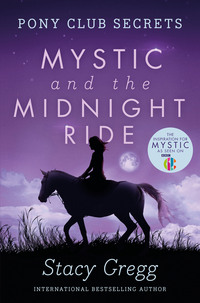
Полная версия
The Forever Horse
He spent the rest of the night on the computer, and at one point I remember he came into the living room and began to sort through a stack of my drawings on the coffee table.
“Where’s that one you did the other weekend?” he asked me. “Those two black-and-white horses trotting in the park with the big oak trees overhead? It’s not on the fridge any more.”
I always put my best works on the fridge and then after a week or so I put them away in a drawer in my room. That was where I found the black-and-white horses.
Dad looked at the drawing and smiled. “This will do the trick,” he said. I didn’t know what he meant by that at the time, and I didn’t think to ask.
For the rest of term there was a truce between me and Mrs Mason. It wasn’t as if she started liking me or anything. That would have been too much to hope for. But she didn’t keep looking over my shoulder to see what I was doing either. I think she couldn’t be bothered facing down my dad again.
It was almost the end of term when Dad came home one evening and called me into the living room. There was something about the tone of his voice that had me really worried.
“Am I in trouble?” I asked when I saw him standing there with that serious look on his face.
Dad didn’t say anything. He held out his hand and I saw the envelope. It was made of thick creamy paper embossed with a silver seal that had words in French on it.
“Is it for me? You’ve opened it already,” I pointed out to him. The envelope was torn.
Then I saw he was shaking. There were tears in his eyes.
“Dad, is everything OK?” I was worried now. “What’s going on?”
“You’re in,” he said.
“In what?”
“The School of Arts in Paris,” Dad said. “A school term on a full, all-expenses-paid scholarship.”
“But I didn’t apply to art school,” I said.
And then I remembered that day after the parent-teacher conference, when he’d searched out that drawing I did of the two black-and-white cobs.
“You didn’t tell me you were going to apply to any art school,” I said.
“I didn’t want to get your hopes up,” Dad said. “It’s a scholarship for an English pupil to study there. They get over a thousand applicants – and only one kid gets picked.”
“And they picked me?”
“They picked you,” Dad confirmed.
“So, Maisie.” He smiled at me. “What do you say? Do you want to go to Paris?”

We went out to a French restaurant to celebrate. It seemed appropriate, considering.
“The Parisian School of the Beaux-Arts is the most famous art school in the world,” Dad said as the waiter handed us menus. I looked at the prices – eight pounds for a green salad!
“Did you win the lottery?” I asked.
“We deserve a special treat this once,” Dad replied.
“But this Paris school,” I pressed home the question. “What about that? Is it expensive?”
“Very expensive,” Dad said. “But your fees and expenses for the term are paid for. That’s what a scholarship means.”
“So you don’t have to pay anything?” I went back to the menu. “What are l’escargots?”
“Snails,” Dad said. “Dare you to order them!”
I wasn’t falling for that. I got burger and chips – in French it was called steak haché and frites. I could read the menu a little. I had taken French this year for the first time at school, and Dad always joked that the only words I seemed to retain in my brain were about food.
I squirted tomato sauce all over the frites as Dad explained to me about the scholarship.
“How will it work, though?” I asked. “If we have to go and live in Paris? How will you do your job?”
We were on the puddings by now. Dad had ordered the chocolate mousse. He gave it a prod with his spoon, but he didn’t eat. He didn’t speak for a bit either, and then he said. “It would just be you, Maisie. I need to stay and work – they won’t hold my job for that long. You’d have to go alone.”
I had just shoved a forkful of meringue in my mouth so I had to chew before I could reply.
“I can’t go and live in Paris on my own. I’m thirteen!”
“I know,” Dad said. “I’m not sure the scholarship people realised you were so young either. I think I forgot to fill in the bit with your age because in their reply they asked me what university you were currently attending!”
“Do you think they’ll withdraw the offer when they find out?”
“I don’t know,” Dad admitted.
I felt my heart sink. “So I’m not going to Paris?”
Dad ruffled my hair.
“Don’t fret yet, Mais,” he said. “I’m going to talk to them. Perhaps there’s a way we can make it work.”
***
Let me tell you something about my dad. He is not a man who admits defeat. Yes, after he spoke to the Paris school, he said it had come as “a bit of a shock” to them when they found out I was only thirteen. Apparently they wanted to cancel my scholarship on the spot. Except for one woman who stood up for us. Her name was Nicole Bonifait – she was the great-great-great-granddaughter of Rose Bonifait, the artist who started the whole scholarship in the first place. Nicole Bonifait told them that she would take responsibility for me, acting as my guardian while I was in Paris for the term. Then Dad spoke to my school in Brixton and they agreed to let me go on exchange (sucks to Mrs Mason!) and it was done!
One month later, I stood with my bags at Charles de Gaulle airport, being pushed this way and that as people hustled by me, surging through the arrivals terminal. I was in Paris! All. By. Myself.
And for a brief moment, standing there in the terminal, I felt entirely and utterly alone and completely terrified. And then, it was as if the crowds parted in front of me by magic and through the throng came Nicole Bonifait. Her flame-red hair was loose and bouncing on her shoulders as she hurried towards me.
“Welcome to Paris, Maisie,” she said warmly as she grabbed my bags from the trolley. “Your life as an artist begins here and now.”
***
We drove into the city round the Arc de Triomphe, and through the tinted windows of Nicole’s black Renault with its own chauffeur I caught a glimpse of the Eiffel Tower in the distance. Then we were whizzing along the broad avenues that run alongside the Seine and crossing over the river. I looked out of the window at pink horse-chestnut trees in bloom, and elegant cafés on every corner and felt like I was in a movie. Paris!
“This is the Left Bank,” Nicole explained. “The artists’ side of the city. The most famous names all went to art school here: Matisse, Picasso and Renoir, and Rose of course. That café on your left? Les Deux Magots? It was Rose’s favourite. Always filled with painters, talking and eating and drinking.”
Nicole saw the worried look on my face.
“Is there something wrong, Maisie?”
“I feel like I’m going to let you down,” I said. “I’m not a real artist.”
Nicole laughed. “But of course you are! You’re the chosen one, Maisie! You follow in the footsteps of the great Rose Bonifait herself. Your scholarship bears her name and her world is now yours. Even the rooms that you will live in while you are here in Paris are the same ones that Rose herself occupied when she attended the school.”
A block down from Les Deux Magots café we pulled up outside a branch of the most famous cake shop in Paris, Ladurée. I got out of the car and gazed in through the gilt-trimmed windows of the store at a display of rainbow-coloured macarons, little meringues stacked up as if they were precious jewels. We swept past its pretty windows and went in through the doors of the building, into a tiny foyer, which housed an ancient elevator. Nicole ushered me in and slammed the gold doors closed without waiting for the driver. “He’ll follow us up with the bags,” she assured me as she pressed the button for the top floor.
The elevator rose and I watched the floor numbers whizz by as we went up, up, up. “The Bonifait corporation owns the entire building,” Nicole explained. “Most of the levels are offices these days, but the upper level remains our family home …”
The elevator came to a sudden, jerky stop and the doors opened and we stepped out into a grand entrance room with an ornate gold ceiling, brilliant green swirly malachite pillars and cold marble floors. It was so huge our entire apartment back home in Brixton could have fitted into it.
“Come this way. Your rooms are in the east wing,” Nicole strode ahead, her boots clacking on the marble floor. “You’ll have your own bathroom and a small kitchen, but there is no need to cook. You’ll take your meals with me and Françoise in the main dining room.”
“Who is Françoise?” I asked.
The answer to the question greeted us in the next room. A girl about my age with flame-coloured hair, who looked very much like Nicole, was lying on a sofa piled high with long-haired caramel Persian cats.
“Maman! You’re back!” the girl leapt up from the sofa and the cats yowled in complaint as they were flung off in her wake.
“You must be Maisie!” the girl rushed to me and kissed me on both cheeks.
“You can’t imagine how excited I am to have you here.” The girl’s eyes were bright. “All the other artists who’ve come to stay have been boring adults. But now we have you, and this is going to be the best summer ever. We can go swimming and have ice creams and …”
“Françoise.” Nicole rolled her eyes. “Maisie is not here for a play date! She is here to attend art school.”
“I know that!” Françoise sniffed. “You don’t have to be boring about it, though! She can still eat ice creams, can’t she?”
Françoise clutched my arm as if I were about to bolt off. “Come on, let me show you the rooms.”
Françoise dragged me away before Nicole could stop her, and we scooted together down the corridors and through a door that led to the east wing. Here, the mood of the apartment changed. No more flashy gold and marble. The room I was standing in now clearly belonged to an artist. The worn parquet floors were spattered with paint. A row of easels in various sizes leant against the wall. Down one wall of the room the windows were almost floor to ceiling, letting in the most amazing light and giving me a view over what seemed to be the whole of Paris. “It’s very basic, I know.” Françoise was apologetic.
“It’s perfect,” I said.
“Really?” Françoise wrinkled up her nose. “I find it a bit drab and grubby, but it’s good that you like it.”
***
I phoned Dad before bedtime. I told him I’d arrived safely and that everyone was very nice. I could tell he was trying to keep the conversation light to stop me feeling homesick. Neither of us were used to being apart like this. All my life, apart from one school camp, I’d never been away without Dad. “Good luck for tomorrow, Maisie,” he said as he hung up. And those words kept me awake way after midnight as I lay in my bed and looked out of the windows at the Paris roofline under the inky night sky and felt sick to my stomach about my first day at school.
***
I should never have brought my own canvas. I realised this as I walked across the cobbled courtyard. No one else was carrying one. At the office of the school administrator, Madame Richard, I sat on the chair and waited with my stupid big canvas and my bag, feeling like a little kid in Year Zero at primary school. Madame Richard opened her door. “Maisie? Here you go!”
I thought she would show me inside and talk to me about the school. I expected at the very least she’d show me where the classroom was! Instead, she just gave me a pink slip of paper and waved me towards classroom 1C!
In the end I found it by myself. Classroom 1C was on the lower level of the building, and the number was written in black on the door.
I could hear the buzz of conversation as the door swung open, but the moment they clapped eyes on me the words froze in the air. Sixteen art students, all of them so old they looked, like, almost twenty or something, stood silently behind their easels and stared straight at me. I have never wanted the ground to open up and swallow me so bad.
“You must be Maisie Thompson?” A bearded man in a dust-brown short-sleeved shirt and black-paint splattered jeans came over and shook my hand. “My name is Augustin. Congratulations on your scholarship.”
He said the words in perfectly accented English and then he muttered, “It would be nice if they would consult me in these matters of course …”
He said this in English too so I’m sure he meant me to understand him, and the meaning of his words, that he hadn’t been the one to select me for the scholarship and perhaps was not entirely happy about it. Certainly it didn’t seem like he was congratulating me at all and he definitely seemed disgruntled about having me in his class.
“You may take the easel at the front of the room,” Augustin directed.
I felt uneasy. It meant that I would have my back to my classmates and they could look over my shoulder and see what I was doing. The idea that these sophisticated art students could see my work as I was creating it suddenly made me deeply self-conscious.
“I see you have brought your own canvas,” Augustin said. “Put it aside as we are working on paper and sketch pads at this point. I don’t think we are ready to commit our ideas to canvas for posterity quite yet.”
There were sniggers from my classmates. I turned bright red, and stared hard at my shoes. “I haven’t brought a sketch pad,” I replied.
“Then you can borrow mine for the day,” Augustin said.
He handed me the pad, and then he went back to the front of the class and began to shuffle papers on his desk. I stood nervously behind the easel, staring at him until he looked up again.
“Yes?”
“I was just wondering,” I said. “What we are drawing?”
There was another snigger from my classmates. Augustin looked imperiously down his nose at me.
“Mademoiselle Thompson,” he said. “This is my class, but you have your own mind, do you not? I’m not here to guide your hand. What you decide to draw is up to you.”
I wanted to say, well, why did I come all the way to France just so I can stand here with no direction or input then? I could draw by myself at home just as easily. But I got my pencil out and began to sketch. I was thinking about the last series of pictures that I’d done – works based around those big black-and-white cobs who hacked around Hyde Park. I decided to continue with that, and drew from my memory.
Soon, I had the outlines down and I was sketching detail, the tree boughs above them, the riders on their backs. Behind me, the rest of the class were laughing at something. I tried to ignore it, and then the girl right behind me spoke up. My French was poor but I could make out what she was saying – it was something like: “Look, sir. I have my end-of-year assignment completed ready for the auction at Lucie’s.”
There was laughter from the class as she showed off her drawing. It was a stick-figure pony with a circle for a tummy and four sticks for its legs.
“Stop wasting time, Antoinette,” Augustin replied. “Get on with your work.”
“Ah, but, sir,” Antoinette persisted. “Isn’t this all you have to do now to get into the Paris School and the auction too? Draw pictures of pretty ponies!”
There were more giggles until Augustin snapped. “Enough! All of you!”
But it didn’t stop. For the rest of the day I could hear them, making little whinnies and clip-clops. It turned out that the auction the girl was talking about was the big deal for the students. Being selected to sell your work at Lucie’s was a prestigious achievement for the best pupils at the school. At the end of term, only the superstars of the Paris School would make the cut and be picked. Needless to say, after today I wasn’t thinking that short list was going to include me. At the end of class Augustin had looked at my drawing and hadn’t uttered a single word.
He hated my work – I could sense it. And the students hated me. So that was it. I had come all the way to Paris to be teased – just as I had been back home – for drawing horses!
***
There was a bath in my private rooms. I love baths and we don’t have one at home. That night, I lay back in the tub with my eyes shut tight, and I heard the laughter of Antoinette and her friends in my head and I felt like no matter what Nicole had said, I was never, ever going to be a real artist. I didn’t belong here. I lay there and listened to the tap drip, and then I stretched my hand back to grab the soap and I felt my knuckles rap against the wood panelling of the bathroom wall. It was a hollow sound, an empty clonk. The wall panel wasn’t solid. I tested the other panels. The sound was solid. The hollow panel was different from the rest. I knocked my knuckles against it again and this time, the panel twisted and pivoted away. I panicked, thinking I had somehow broken the wall! Then I realised it wasn’t broken at all. I had somehow uncovered a secret hidden chamber. A hidey-hole, just big enough to put personal items. I peered in but I couldn’t see anything.
I got out of the bath, towelled myself down and went and got my phone. I turned on the torch function and squinted inside the hidey-hole. At first I thought there was nothing inside at all – it looked entirely empty. But then I saw something sitting on the bottom of the cupboard. I picked it up and dusted it off. It was a book, wrapped in an ancient cloth-cover. Inside, where time hadn’t faded it, the cloth was dark brown but the exterior had been bleached like bone to grey, and on the front it was imprinted with three dark blood-red gilded letters – MRB. Later, I would discover that they were initials and the M stood for Marie. It was her first name, although no one knew her as Marie; everyone always called her Rose. Rose Bonifait. And the book I had just discovered in the secret chamber that day was her diary.

July 4, 1852
I have spent all morning at the abattoir. You cannot imagine how much it upsets me, but I have to go – it’s my duty as an artist to understand the anatomy of the animals that I paint – from their skin to the very core, bone and sinew. It makes me glad every time I visit that I am vegetarian – even though Madame Gris complains so much about how difficult it is to feed me with my fussy, strange ways. One day, she will see. It will be considered normal to do as I do and choose not to eat God’s creatures.
This morning it was with the usual sense of dread that I went in. But I steeled myself and I did it, and I stopped myself from gagging. I sat in the corner as the men went about their gruesome task and I drew. I looked at every detail, and I tried to be detached and professional, as if I were, say, a vet or a surgeon. It is easier said than done, however, and two hours later, when I emerged into the sunlight with six sketches in my book, I was shaking and in floods of tears. All I could think to do was to escape the misery of what I had witnessed by doing the one thing in the world that I love more than painting. And so I went to the stables beneath our Parisian city apartment and I saddled Celine.
Of all the horses we own, she is the one. No other mare in our stables is as clever as she is, or as kind.
I remember summer holidays at the chateau in Fontainebleau when Mama would put me on terrible Sebastian. That tiny grey pony with the flashing eyes and dainty hooves! Oh, Sebastian – what a terror he was! If you were on his back then his only thought was to get rid of you! His favourite trick was to sweep underneath the boughs of a low-branched tree to knock you off. If this failed then he bucked like a bronco. And if that didn’t work he would take himself off into the field and drop to his knees, preparing to roll on top of you! If you didn’t leap off his back at this point, he would crush you, and the trick was so effective that he broke the saddle twice before Mama gave up on saddles entirely. After that, she just used a saddle blanket and a surcingle on him to save the expense of buying a new saddle time and again. Sebastian was the closest thing I have ever seen to pure evil and yet, oh how we loved Sebastian! It was only once Mama despaired of his endless naughty antics and realised that despite his diminutive size he might actually do us harm, that she retired him and bought us Celine to ride instead.
So when I say that my education as a horsewoman began with Celine it is true – because all Sebastian taught me was how to jump off very quickly to avoid being squashed.
Celine is the opposite of Sebastian. You could not find a horse more even tempered, sweeter or more compliant. She’s almost twenty now – when we first got her she was nine years old, a mare in her prime. Celine is very beautiful, and I know that shouldn’t matter, but it does with horses. She’s a rich russet chestnut, with a blond mane and tail, deep-brown eyes and clean, slender legs. Her face has a perfect dish – a little Arabian blood saw to that. And the four white socks and the star on her forehead stand out like snow against the burnish of her coat. I have so many drawings of her in my sketch book. She is good at posing. She always pricks her ears forward and arches her neck for me.
When people say that they prefer geldings because mares are moody and ill-tempered, I think to myself – well, you clearly never met my horses. Or me! I am a girl, after all, just like Celine, and I’m always cheerful and in good spirits and both my brothers, Philippe and Dorian, can be very sulky boys indeed! I am a better rider than either of them too, and a better painter. Not that I’m boastful – no one likes it when girls are proud. Papa warns me constantly about that. And I reply that no one seems to like it much when girls do anything at all. I am working on solutions to this problem.
Like when the Paris School turned me down because I was a girl. I wasn’t foolish enough to try to argue with them that my work was better than any. Instead, I accepted their rejection and I resolved to work harder still. Locked in my room, all I did was paint, night and day. I did not leave the house, save for twice each week, when I would pack up my easel and my paints and I would walk to Hospital Boulevard where the horse markets take place. Here, amongst the chaos, I would set up my equipment and I would focus my eye on the horses. The most amazing creatures went under the hammer at these auction yards. Men would enter leading cavalcades of mares, all rich bays or burnished chestnuts. There were pleasure horses for ladies to ride and work horses for pulling carts. Thick-set grey dappled Percherons and burly Ardennais were very popular and the men who brought them through to the yards for sale would plait their manes with stiff red ribbons and meticulously braid and bind their tails. Their coats shone from being strapped with hay wisps and their hooves were oiled and polished. I know this because I captured every detail on my canvases. I would stay there silent in the corner and paint and paint as the auction was underway until the last lot had been sold and the emptied-out yards stank of dung and cigarettes and sweat.
For three months I worked in this way until I had two paintings that I considered worthy of being submitted to the school. My third and best painting was a work created in the Jardin de Luxembourg, not far from our own stables. It was a portrait of Celine. In this work, I’d painted her side-on, standing in the sunshine dappled by trees. She was staring into the distance, ears pricked and eyes kind. I wasn’t entirely satisfied with the work. There was something unnatural about her legs – perhaps the angle of her hocks – legs are fiendishly tricky to do. But all the same, I knew it was a good picture. Her proportions were perfect and the colours and contours were lifelike and shiny. All three paintings were far better than any of those works by the boys who had applied to art school that year. But, don’t say that out loud, Rose! Girls are not allowed to be boastful, remember?









